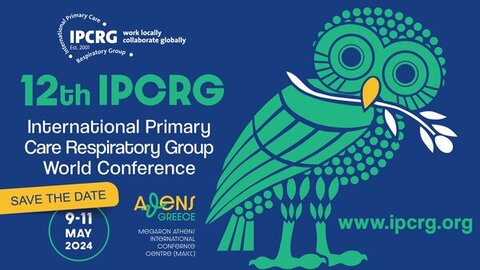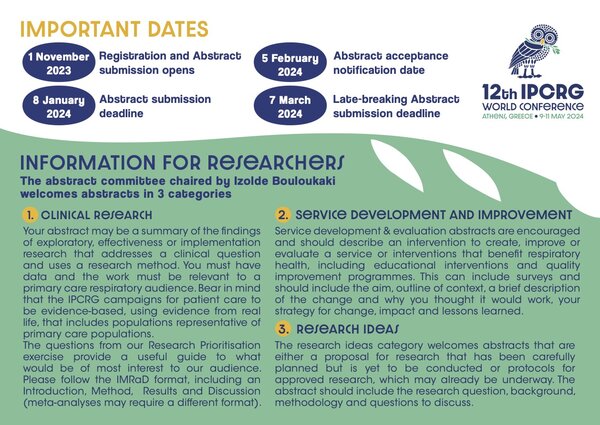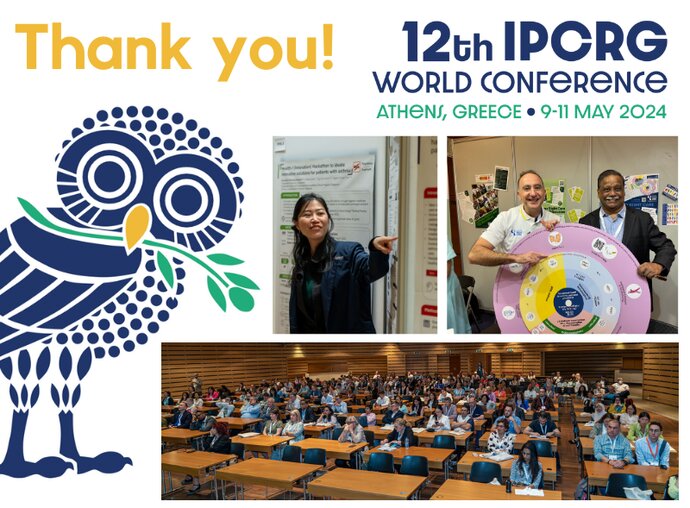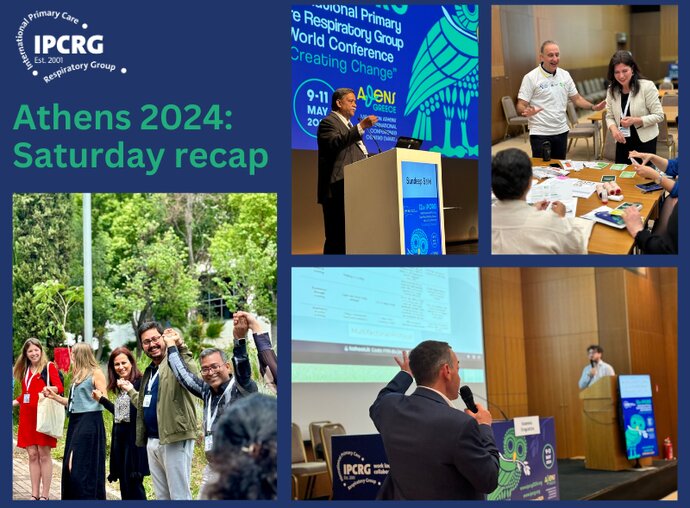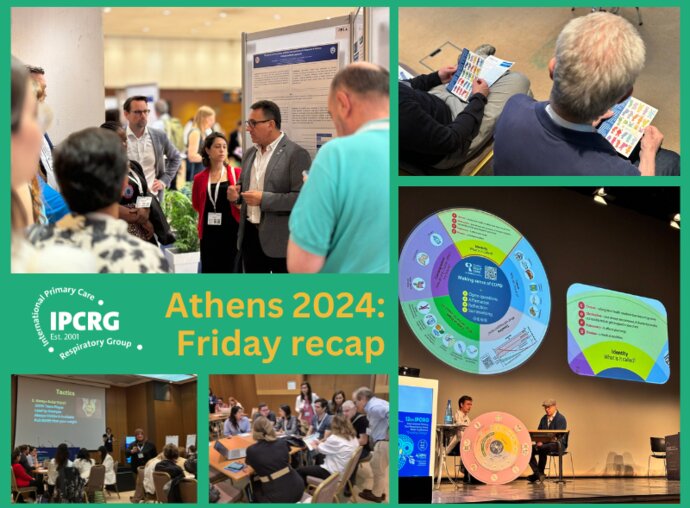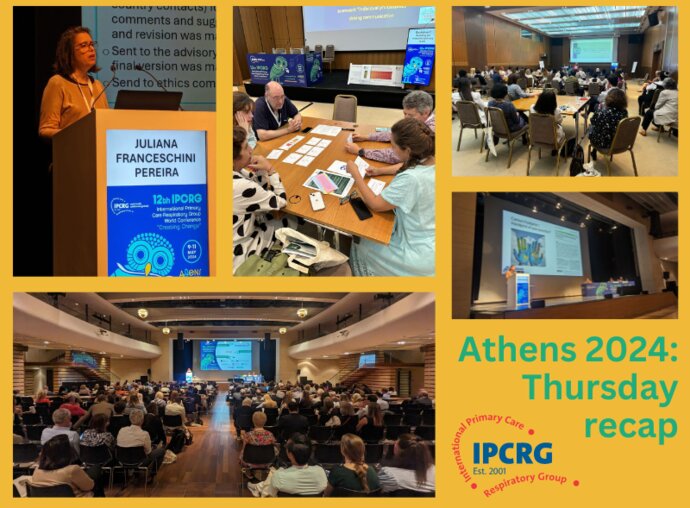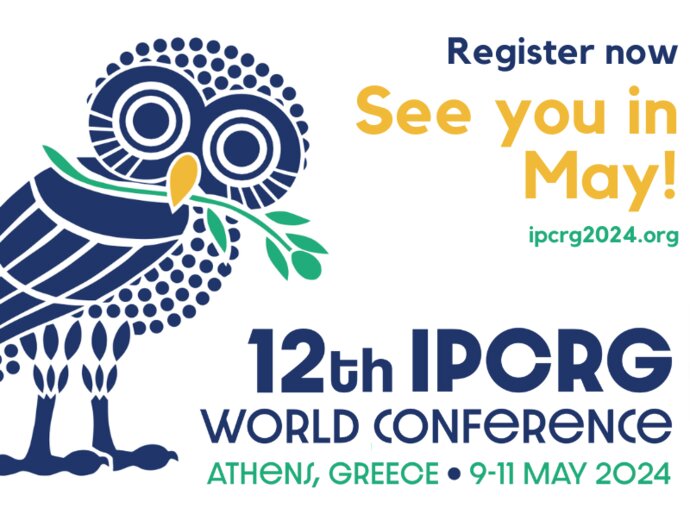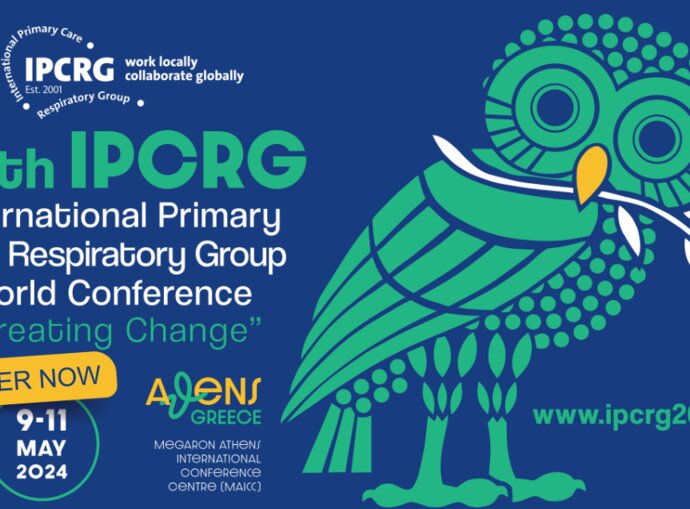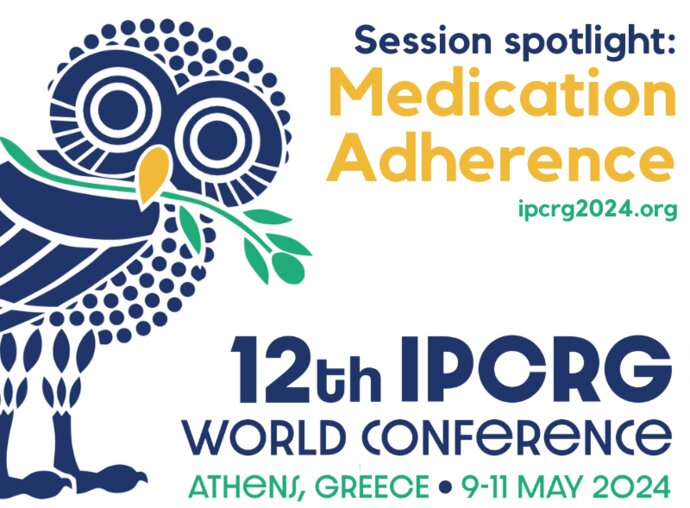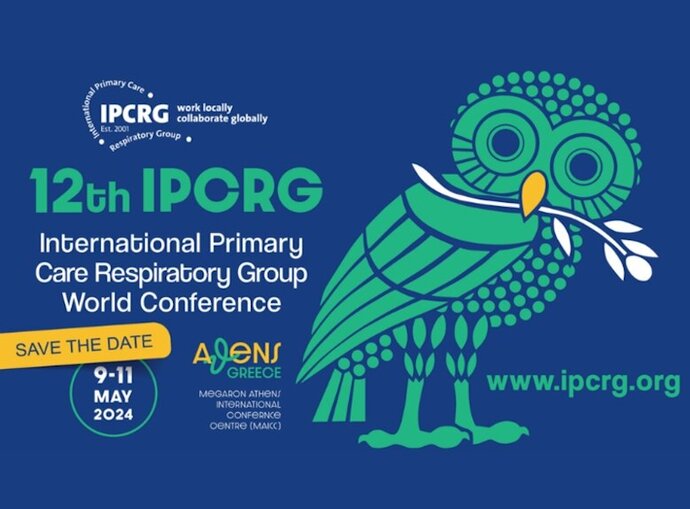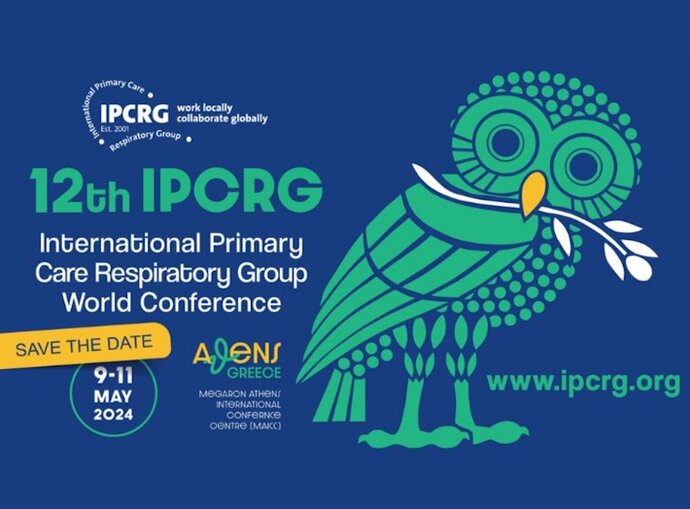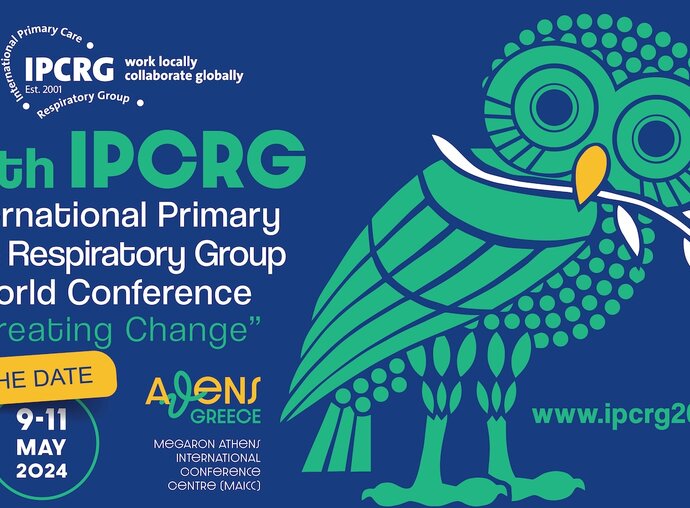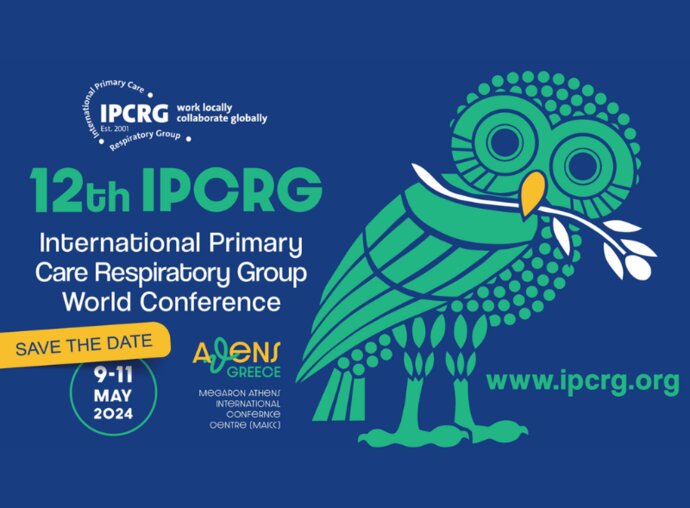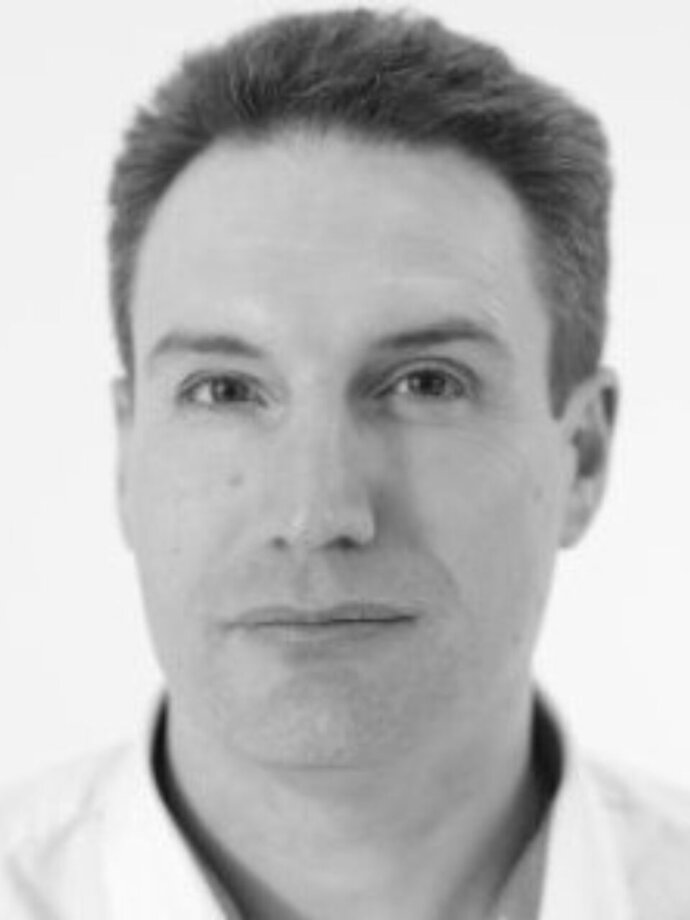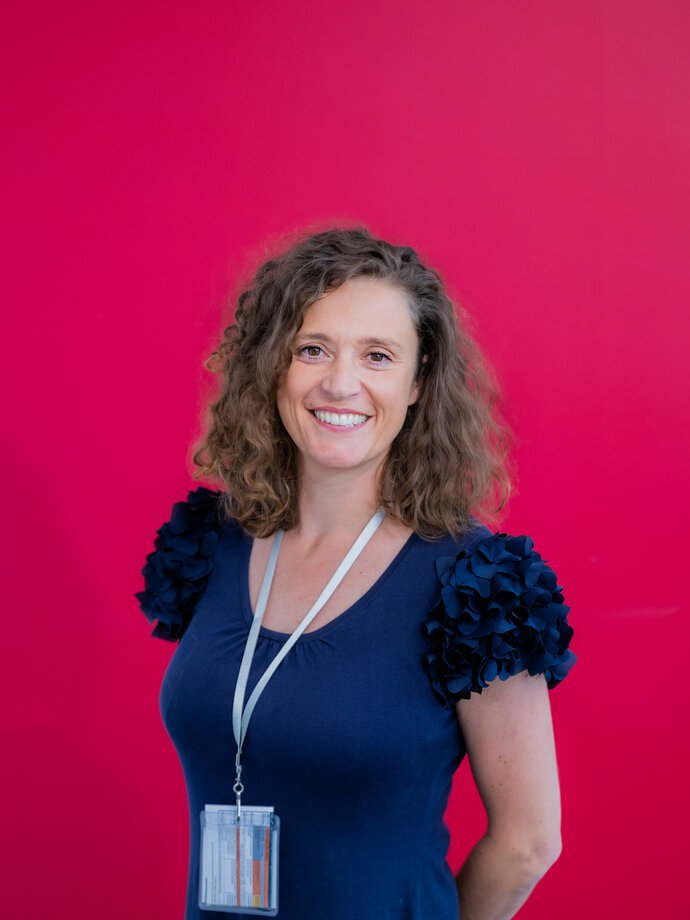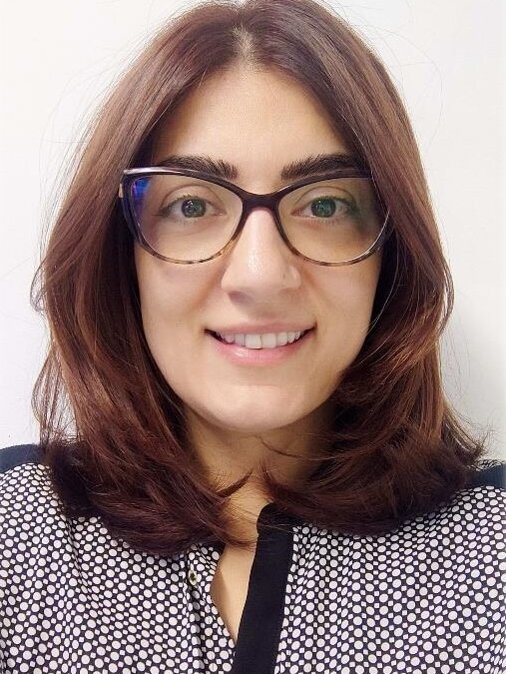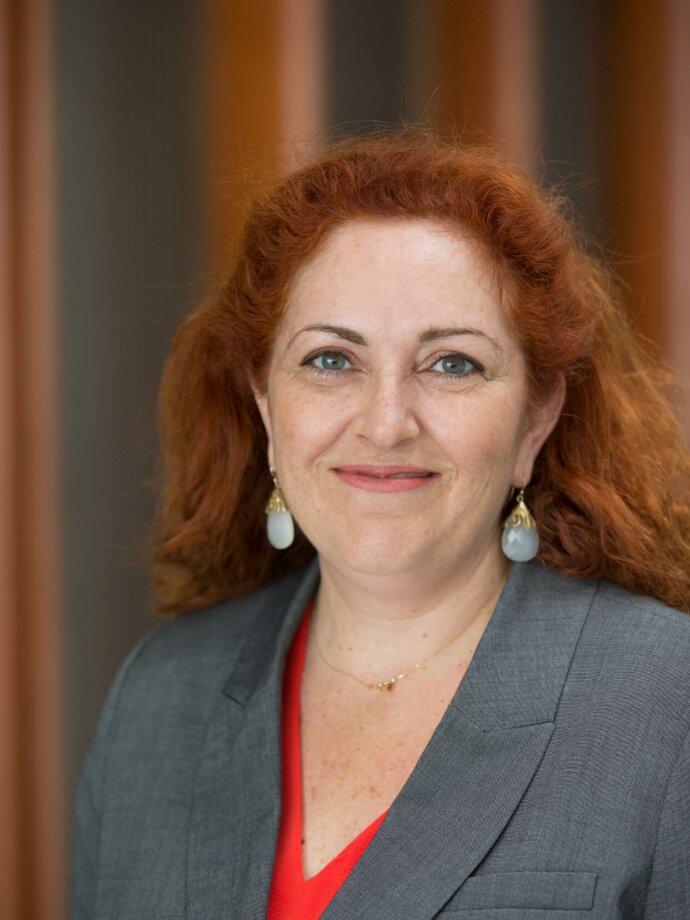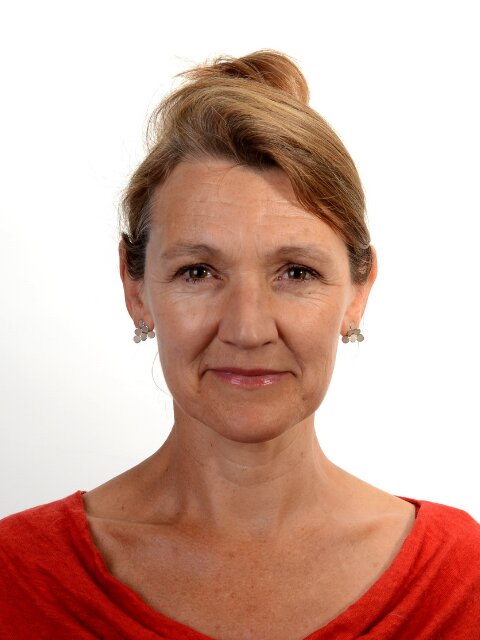12th IPCRG World Conference
Visit the conference website to view the scientific programme.
Date: 9-11 May 2024
Location: Megaron Athens International Conference Centre, Athens, Greece
Add event to calendar: Apple / Google / Office 365 / Outlook / Outlook.com / Yahoo
Welcome to IPCRG Athens 2024
We were delighted to hold our 12th World Conference in Athens, Greece on 9-11 May 2024. It has been ten years since we were last in Athens, and a lot has happened since then! As well as our once every two year opportunity to meet with global primary care colleagues, this was also an opportunity to meet new colleagues from Greece, Cyprus, Turkey, North Africa and the Middle East. The membership of our Scientific Programme Committee, chaired by Assoc Prof Ioanna Tsiligianni, University of Heraklion, reflects this.
The theme of the conference was Creating Change. Therefore, as well as being a unique opportunity for researchers, the meeting had a strong educational focus, including valuable updates on key primary care issues, essential skills such as motivational communication and a new focus on leadership capacity building.
Following the success of our post-pandemic meeting in Malaga in 2022 the international Scientific Programme Committee, an experienced team of primary care clinicians, developed a varied programme offering skills-based workshops, plenary sessions, oral abstract sessions and conversation cafés. Our speakers addressed topics and issues relevant to countries of all income levels in an exciting mix of plenaries, debates, interactive sessions and workshops. Sessions were selected to meet the core interests and address current issues in respiratory primary care. The meeting had a strong educational focus, aligning with our objective to build research capacity in primary care.
The 12th IPCRG World Conference was an ideal place to meet primary care role models, academics, teachers, and early adopters of innovation and to support the continued development of primary care to deliver good respiratory outcomes.
It proved to be an exciting conference that ably met our peers' learning needs and curiosity. We thank those of you who were able to join us!
Click here to visit the conference website, where you can find all the details you need for the conference including registration and abstract submission.
Location: The conference took place at the Megaron Athens International Conference Centre in the heart of Athens.

Abstract deadline: 8th January
Abstract submission closed on 8 January 2024 and authors who submitted by this date have been notified.
For the first time, we introduced late-breaking abstracts to allow those whose data was not available before the initial deadline to be able to submit an abstract for the World Conference. This closed on 7 March and authors were notified by 28 March 2024.
Abstracts
Abstract submission is now closed. The abstract committee chaired by Izolde Bouloukaki welcomed abstracts in 3 categories:
1. Clinical research
Your abstract may be a summary of the findings of exploratory, effectiveness or implementation research that addresses a clinical question and uses a research method. You must have data and the work must be relevant to a primary care respiratory audience. Bear in mind that the IPCRG campaigns for patient care to be evidence-based, using evidence from real life, that includes populations representative of primary care populations.
The questions from our Research Prioritisation exercise provide a useful guide to what would be of most interest to our audience. Please follow the IMRaD format, including an Introduction, Method, Results and Discussion (meta-analyses may require a different format).
2. Service development and improvement
Service development & evaluation abstracts are encouraged and should describe an intervention to create, improve or evaluate a service or interventions that benefit respiratory health, including educational interventions and quality improvement programmes. This can include surveys and should include the aim, outline of context, a brief description of the change and why you thought it would work, your strategy for change, impact and lessons learned.
3. Research ideas
The research ideas category welcomes abstracts that are either a proposal for research that has been carefully planned but is yet to be conducted or protocols for approved research, which may already be underway. The abstract should include the research question, background, methodology and questions to discuss.
The IPCRG actively encourages primary care practitioners to submit an abstract, being aware that there are few academic centres of primary respiratory care and that there is no global database of primary care respiratory research in progress. We would be delighted to receive abstracts describing a research question and a methodology that can then benefit from peer discussion and challenge to increase research capability in primary care respiratory research.
The questions from our Research Prioritisation exercise are a good starting point for your research ideas, and ideas can include air quality, tobacco use and dependence, physical activity, breathlessness, cough, asthma, COPD, multi-morbidity including chronic respiratory disease, respiratory infections including TB, RSV, COVID-19 and post-COVID syndrome.
Abstract languages
The official language in which abstracts must be written is English. We accept that you might wish to write your abstract in another language and then translate. Please note however that you will need to create your presentation/poster in English and be prepared to answer questions in English. You are welcome to ask for help to review and rehearse, and to identify someone to work with you, if your abstract is accepted.
Scientific programme
This meeting has a full programme of educational, discussion and scientific sessions. These include the major topics of planetary and respiratory health, asthma and COPD, and a wide range of sessions are planned covering breathlessness, mental health, cough, motivational communication, building an interdisciplinary team, and leadership. To view the full scientific programme (subject to change) click here.
